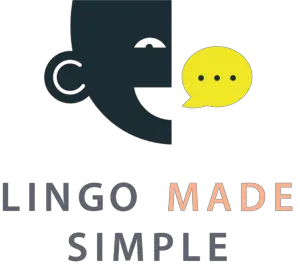What happens when you meet a stranger while going about the business of your day?
Some people put their heads down and walk by, ignoring the unknown person to avoid an unwanted conversation.
Others might offer a smile or a friendly “Hello.” If you live in a small town, a wave might accompany that exchange.
When the interaction is brief, those options are usually considered socially acceptable. If you have a prolonged interaction with that stranger, like when a cashier is checking out your groceries, it might feel more comfortable to ask “how’s your day” and “how’s it going” to avoid an unwanted silence.
Difference Between “How’s Your Day” and “How’s It Going”
The English language allows people to greet others with several different expressions. Although “Hi” or “Hello” are common, variations like “Hey” or “Howdy” are acceptable. If you want to find out more about someone after this greeting, you will ask, “How’s your day?” or “How’s it going?”
Most people use the terms “how’s your day” and “how’s it going” interchangeably in English. After asking this question, you’ll have the other person give you a summary of what happened to them over the day or at a specific time.
There is a subtle difference between the two phrases when you look at them at a deeper level.
When you ask someone, “How’s your day,” you’re requesting a summary of what has happened to that person since they got up that morning. The typical response would include the most significant event, whether it was positive or negative.
If you ask someone, “How’s it going,” you’re eliminating the time element from the request. Although most people still talk about their day with this exchange, you might receive a longer, more thorough answer.
The other change between “how’s your day” and “how’s it going” involves a person’s emotional state.
When you ask about the day, you’re requesting facts. If you ask about how things are going, you’re inviting more of an opinion or perspective.
What About the Contraction in the Questions?
When looking at the differences between “how’s your day” and “how’s it going,” you’ll notice that both expressions start with a contraction.
“How’s” is actually “how is.”
That means it would be appropriate to ask the questions by saying, “how is your day” or “how is it going.” Most people use contractions because it shortens the sentence a little, making the conversation more efficient.
The reason why the contraction is possible is due to the singular structure of the subject. Since only one entity is involved in the process, you don’t need to switch to “are” during the conversation.
If you address the request to more than one person simultaneously, you’d still use “how’s your day” and “how’s it going.”
Only when a singular request that involves 2+ people is made would a switch get made with this conversation starter. Here are a couple of examples of what that would look like when talking with others.
“How are your days going?”
“How are you two doing?”
Although these questions are considered small talk, you might encounter someone who prefers a more in-depth answer when prompted. Once they begin to speak, you’re stuck listening to the solution until they finish since leaving would be considered rude.
Alternative Conversations to Consider Than “How’s Your Day” or “How’s It Going”
Since “how’s your day” and “how’s it going” are small talk questions, you have the option to try other topics that might feel more comfortable when speaking with strangers.
It’s essential to remember that small talk involves knowing what to say and what to keep private. Although it might be tempting to avoid these conversations, especially with social anxieties, a quick chat usually helps everyone feel better.
Here are the best topics to ask about if you find yourself in a situation where small talk is necessary.
1. Ask about the weather.
Talking about the weather often feels mundane. It’s also one of the most neutral subjects you can discuss when a social conversation is necessary.
Here are some of the best questions you can ask to start up a conversation about the weather.
- Are you responsible for ordering this beautiful day?
- Did you hear that rain is in the forecast?
- It turned into a lovely day today, don’t you think?
If it feels awkward to discuss the heatwave or the storm that came through, try practicing at home first. You’ll often find that the conversation will move from the weather to something more substantial.
2. Talk about movies, shows, or entertainment options.
We can all agree that books, movies, TV, and eating are subjects of common concern for most people. That means they can also be fantastic conversation starters.
Here are some ways you can embrace small talk by including these subjects.
- Have you found any new or interesting podcasts?
- Do you have any book recommendations?
- Have you tried the latest game (app, console, TV, etc.)?
If someone has a different opinion than you, this conversation can turn into a spirited debate!
3. Discuss the latest trends in sports.
If you’re having a conversation with someone from the same town or region, it can be fun to discuss what is happening with the local sports scene.
You can talk about a favorite team, a recent tournament, or the history of the town’s championships.
Current events create a strong buzz with this small talk subject. “Did you happen to see the Olympics?” is a great starter question.
When to Know the Difference Between “How’s Your Day” and “How’s It Going”
If you want to know how a person’s day is going, you will ask, “How’s your day?” When a more thorough answer is sought, you’d ask, “How’s it going?” Although both options are suitable for small talk, they don’t always offer the outcome you expect. That’s why precision is helpful.
When you ask, “how’s your day” and “how’s it going,” most people understand that a short response is requested.
Some individuals need to practice their social cues, and questions like this can help them do that.
If you’re patient and kind, you might find that these conversations can often lead to new friendships!

